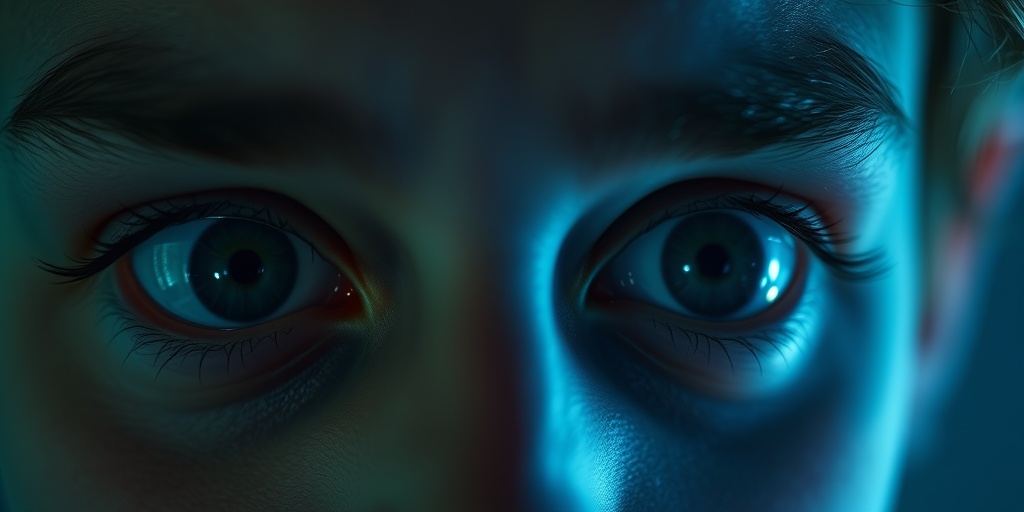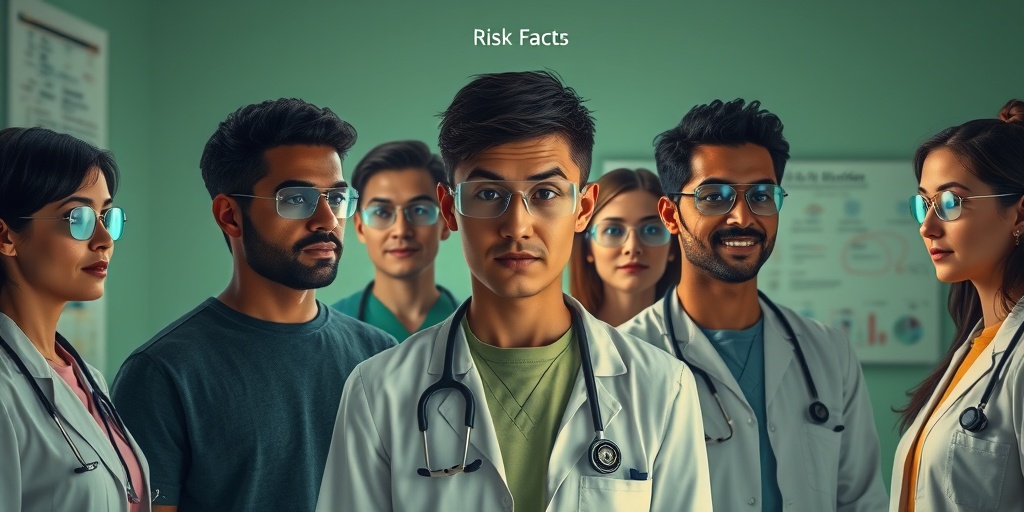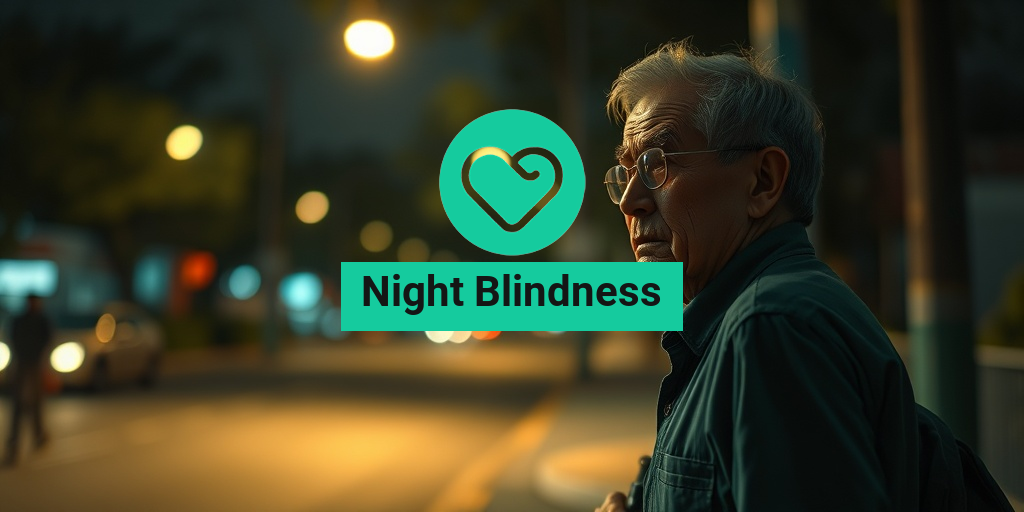What Is Night Blindness?
Night blindness, medically known as nyctalopia, is a condition that affects a person’s ability to see in low-light conditions or at night. While it is not a disease itself, it is often a symptom of various underlying health issues. Individuals with night blindness may find it challenging to drive at night, navigate dimly lit areas, or adjust to sudden changes in lighting.
The condition can stem from several causes, including vitamin deficiencies, eye diseases, and genetic disorders. Understanding the root cause of night blindness is crucial for effective treatment and management. For instance, one of the most common causes is a deficiency in vitamin A, which is essential for the production of rhodopsin, a pigment in the retina that helps with vision in low light.
Causes of Night Blindness
- Vitamin A Deficiency: This is one of the most prevalent causes of night blindness. Vitamin A is vital for maintaining healthy vision, and a lack of it can lead to impaired night vision.
- Retinitis Pigmentosa: This genetic disorder causes progressive degeneration of the retina, leading to night blindness and eventual vision loss.
- Cataracts: Clouding of the eye’s lens can make it difficult to see in low light, contributing to night blindness.
- Diabetic Retinopathy: Diabetes can lead to damage in the blood vessels of the retina, affecting vision in various lighting conditions.
Recognizing the symptoms and understanding the causes of night blindness can help individuals seek appropriate medical advice and treatment. If you suspect you have night blindness, consulting with a healthcare professional is essential for a proper diagnosis.
Symptoms of Night Blindness
The symptoms of night blindness can vary from person to person, but they generally include:
- Difficulty Seeing in Low Light: The most prominent symptom is a noticeable struggle to see in dimly lit environments, such as during twilight or in poorly lit rooms.
- Delayed Adjustment to Bright Lights: Individuals may experience a prolonged period of adjustment when moving from bright to dark environments.
- Increased Sensitivity to Glare: Bright lights, such as headlights from oncoming vehicles, can cause discomfort and further impair vision.
- Frequent Trips or Falls: Difficulty navigating in low light can lead to accidents, making it essential for individuals to take precautions.
It’s important to note that while these symptoms can indicate night blindness, they may also be associated with other eye conditions. Therefore, if you experience any of these symptoms, it is advisable to seek a comprehensive eye examination.
When to Seek Medical Attention
If you notice a significant change in your night vision or experience any of the symptoms mentioned above, it is crucial to consult an eye care professional. Early diagnosis and treatment can help manage the condition effectively and prevent further complications.
For those looking for more information on night blindness and its management, resources like Yesil Health AI (yesilhealth.com) can provide evidence-based health answers tailored to your needs.
In conclusion, understanding night blindness is the first step toward addressing the challenges it presents. By recognizing the symptoms and seeking appropriate medical advice, individuals can take control of their vision health and improve their quality of life. 🌙👁️

Common Causes of Night Blindness
Night blindness, medically known as nyctalopia, is a condition that affects a person’s ability to see in low-light conditions. While it can be a temporary issue, it often signals underlying health problems. Understanding the common causes of night blindness can help in identifying the right treatment and management strategies.
Vitamin A Deficiency
One of the most prevalent causes of night blindness is a deficiency in vitamin A. This essential nutrient plays a crucial role in maintaining healthy vision, particularly in low-light environments. Vitamin A is vital for the production of rhodopsin, a pigment in the retina that helps the eyes adjust to darkness. A lack of this vitamin can lead to difficulty seeing at night.
Retinitis Pigmentosa
Retinitis pigmentosa is a genetic disorder that causes progressive degeneration of the retina. Individuals with this condition often experience night blindness as one of the first symptoms. Over time, it can lead to a complete loss of vision. Early diagnosis and genetic counseling can be beneficial for those affected.
Cataracts
Cataracts, which are characterized by the clouding of the eye’s lens, can also contribute to night blindness. As cataracts develop, they can scatter light entering the eye, making it difficult to see in dim lighting. Surgical intervention is often required to restore clear vision.
Glaucoma
Glaucoma is another eye condition that can lead to night blindness. This group of diseases damages the optic nerve, often due to high intraocular pressure. People with glaucoma may find it challenging to see in low-light conditions, making night driving particularly dangerous.
Other Causes
- Diabetes: Diabetic retinopathy can affect vision, including night vision.
- Medications: Certain medications may have side effects that impair night vision.
- Other Eye Conditions: Conditions like macular degeneration can also impact night vision.
Risk Factors for Night Blindness
Understanding the risk factors associated with night blindness can help individuals take proactive steps to protect their vision. While some factors are beyond our control, others can be managed through lifestyle changes and regular eye care.
Age
As we age, our vision naturally declines, and the risk of developing conditions that cause night blindness increases. Older adults are more likely to experience issues such as cataracts and glaucoma, which can significantly affect their ability to see in low light.
Genetics
Genetic predisposition plays a significant role in many eye conditions. If you have a family history of retinitis pigmentosa or other hereditary eye diseases, you may be at a higher risk for night blindness. Genetic counseling can provide insights into your risk and potential preventive measures.
Health Conditions
Chronic health conditions such as diabetes and hypertension can increase the risk of developing eye problems that lead to night blindness. Managing these conditions through a healthy lifestyle, regular check-ups, and medication adherence is crucial for maintaining eye health.
Dietary Factors
A diet lacking in essential nutrients, particularly vitamin A, can contribute to night blindness. Consuming a balanced diet rich in fruits, vegetables, and whole grains can help ensure you receive the necessary vitamins and minerals for optimal eye health. Foods like carrots, sweet potatoes, and leafy greens are excellent sources of vitamin A.
Environmental Factors
Exposure to bright lights or glare can temporarily impair night vision. Additionally, spending excessive time in front of screens without proper eye protection can lead to digital eye strain, which may exacerbate night blindness symptoms.
In conclusion, recognizing the common causes and risk factors associated with night blindness is essential for early detection and treatment. If you or someone you know is experiencing difficulty seeing at night, it’s important to consult with an eye care professional for a comprehensive evaluation and appropriate management strategies. 🌙👁️

Diagnosis of Night Blindness
Night blindness, or nyctalopia, is a condition that affects a person’s ability to see in low-light conditions. If you find yourself struggling to see clearly at night or in dimly lit environments, it’s essential to seek a proper diagnosis. Understanding how night blindness is diagnosed can help you take the necessary steps toward treatment and management.
Understanding the Symptoms
The first step in diagnosing night blindness is recognizing the symptoms. Common signs include:
- Difficulties seeing in low light: This is the hallmark symptom of night blindness.
- Glare sensitivity: You may find it challenging to adjust to bright lights, such as headlights from oncoming cars.
- Difficulty adapting to darkness: It may take longer for you to adjust when moving from a well-lit area to a darker one.
Consultation with an Eye Specialist
If you experience these symptoms, the next step is to consult an eye specialist, such as an optometrist or ophthalmologist. During your appointment, the doctor will:
- Review your medical history: This includes any existing health conditions, medications, and family history of eye diseases.
- Conduct a comprehensive eye exam: This may involve various tests to assess your vision and eye health.
Diagnostic Tests
Several tests may be performed to diagnose night blindness effectively:
- Visual acuity test: This measures how well you can see at various distances.
- Retinal examination: The doctor will examine the back of your eye to check for any abnormalities.
- Electroretinography (ERG): This test measures the electrical responses of your retina’s light-sensitive cells.
Based on the results of these tests, your eye specialist can determine the underlying cause of your night blindness, which is crucial for effective treatment.
Treatment Options for Night Blindness
Once diagnosed, the next step is exploring treatment options for night blindness. The approach to treatment largely depends on the underlying cause of the condition.
Addressing Nutritional Deficiencies
One common cause of night blindness is a deficiency in certain vitamins, particularly vitamin A. This vitamin is essential for the production of rhodopsin, a pigment in the retina that helps you see in low light. If your night blindness is due to a vitamin A deficiency, your doctor may recommend:
- Dietary changes: Incorporating foods rich in vitamin A, such as carrots, sweet potatoes, spinach, and liver.
- Vitamin supplements: Taking vitamin A supplements as prescribed by your healthcare provider.
Managing Underlying Conditions
In some cases, night blindness may be a symptom of an underlying condition, such as:
- Retinitis pigmentosa: A genetic disorder that causes progressive degeneration of the retina.
- Cataracts: Clouding of the eye’s lens that can impair vision.
For these conditions, treatment options may include:
- Medications: To manage symptoms or slow the progression of the disease.
- Surgery: In cases like cataracts, surgical intervention may restore vision.
Adaptive Strategies
While medical treatments can address the underlying causes of night blindness, there are also adaptive strategies you can employ to improve your night vision:
- Use of night vision aids: Devices like night vision goggles can enhance visibility in low-light conditions.
- Improving lighting: Ensuring that your home and workspaces are well-lit can help reduce the impact of night blindness.
In conclusion, diagnosing and treating night blindness involves a comprehensive approach that includes understanding symptoms, consulting with eye specialists, and exploring various treatment options. If you suspect you have night blindness, don’t hesitate to seek professional help. Your vision is worth it! 🌙👁️

Home Remedies for Night Blindness
Night blindness, or nyctalopia, is a condition that affects your ability to see in low-light conditions. While it can be a symptom of various underlying issues, there are several home remedies that may help improve your vision at night. Here are some effective strategies you can try:
1. Increase Vitamin A Intake
One of the most common causes of night blindness is a deficiency in vitamin A. This essential nutrient plays a crucial role in maintaining healthy vision. Foods rich in vitamin A include:
- Carrots 🥕
- Sweet potatoes 🍠
- Spinach 🌿
- Eggs 🍳
- Fish 🐟
Incorporating these foods into your diet can help improve your night vision over time.
2. Use Eye Supplements
If you’re unable to get enough vitamin A from your diet, consider taking eye supplements that contain this vital nutrient. Always consult with a healthcare professional before starting any new supplement regimen to ensure it’s safe for you.
3. Maintain a Healthy Diet
A balanced diet rich in antioxidants can also support eye health. Foods high in vitamin C, vitamin E, and zinc can help protect your eyes from damage. Include the following in your meals:
- Citrus fruits 🍊
- Nuts 🌰
- Whole grains 🍞
- Leafy greens 🥬
4. Practice Eye Exercises
Regular eye exercises can help improve your vision. Simple exercises like focusing on a distant object for a few seconds and then shifting your gaze to something closer can strengthen your eye muscles. Try this routine a few times a day to enhance your overall eye health.
5. Ensure Proper Lighting
When reading or doing activities in low light, ensure that your environment is well-lit. Using soft, warm lighting can reduce strain on your eyes and make it easier to see in the dark.
Preventing Night Blindness
Preventing night blindness involves a combination of lifestyle choices and regular eye care. Here are some effective strategies to help you maintain good vision, especially in low-light conditions:
1. Regular Eye Check-ups
Routine visits to an eye care professional can help detect any underlying issues that may contribute to night blindness. Early detection is key to preventing further vision problems.
2. Protect Your Eyes from UV Rays
Wearing sunglasses that block 100% of UV rays can protect your eyes from damage caused by sunlight. This is especially important for maintaining overall eye health and preventing conditions that could lead to night blindness.
3. Manage Health Conditions
Conditions such as diabetes and hypertension can affect your vision. Managing these health issues through medication, diet, and exercise can help prevent complications that may lead to night blindness.
4. Stay Hydrated
Drinking enough water is essential for overall health, including eye health. Dehydration can lead to dry eyes, which may worsen night vision. Aim for at least 8 glasses of water a day to keep your body and eyes well-hydrated.
5. Limit Screen Time
Excessive screen time can lead to digital eye strain, which may affect your vision. Take regular breaks using the 20-20-20 rule: every 20 minutes, look at something 20 feet away for at least 20 seconds. This practice can help reduce eye fatigue and improve your overall vision.
By incorporating these home remedies and preventive measures into your daily routine, you can take significant steps towards improving your night vision and overall eye health. 🌙👀

Frequently Asked Questions about Night Blindness
What is Night Blindness?
Night blindness, also known as nyctalopia, is a condition that affects a person’s ability to see in low light or darkness. It is not a disease itself but a symptom of various underlying conditions.
What are the common symptoms of Night Blindness?
- Difficulty seeing in dim light
- Inability to adjust to bright lights after being in the dark
- Frequent trips or falls in low-light conditions
- Blurred vision at night
What causes Night Blindness?
Night blindness can be caused by several factors, including:
- Vitamin A deficiency: This vitamin is crucial for the production of rhodopsin, a pigment in the retina that helps with night vision.
- Retinitis pigmentosa: A genetic disorder that leads to the degeneration of the retina.
- Cataracts: Clouding of the lens can impair vision in low light.
- Diabetes: Diabetic retinopathy can affect night vision.
How is Night Blindness diagnosed?
A night blindness test typically involves a comprehensive eye examination. An eye care professional may assess your vision in low-light conditions and check for any underlying issues affecting your eyesight.
What treatments are available for Night Blindness?
Treatment for night blindness depends on the underlying cause. Options may include:
- Vitamin A supplements if deficiency is the cause.
- Surgery for cataracts.
- Management of underlying conditions such as diabetes.
Can Night Blindness be prevented?
While not all cases of night blindness can be prevented, maintaining a healthy diet rich in vitamin A and regular eye check-ups can help reduce the risk.
Is Night Blindness common?
Night blindness can occur in people of all ages, but it is more common in individuals with certain health conditions or those who are older. If you experience symptoms, it is important to consult with a healthcare professional.
Where can I find more information about Night Blindness?
For more detailed information, consider visiting reputable health websites or consulting with an eye care specialist. They can provide personalized advice and resources tailored to your needs.




